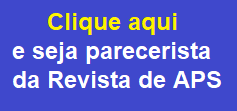The legal landmarks of the drugs policies in contemporary Brazil (1990-2006)
Keywords:
Política Nacional de Medicamentos, Assistência Farmacêutica, Legislação sanitáriaAbstract
The present work focuses on the process of the reorientation of pharmaceutical assistance introduced in Brazil with Law 8,080 of 1990. This law is the first legal landmark of a process that created distinct legal provisions concerning pharmaceutical assistance in the setting of SUS (the Unified National Health System). The main purpose of the study was identifying, systematizing and analyzing the principal documents and proposals that promoted the reorientation of pharmaceutical assistance from 1990 to today. The focus of the work was the elaboration, in 1998, of the National Drug Policy, its antecedents Central for Drugs - (CEME) - Decree 68,806/71 and Law 6,360/76 relative to public health surveillance activities, as well as the increasing number of legislative provisions focused on its effective implementation: establishment: the creation of the National Health Surveillance Agency - (ANVISA) (1999); Law 9,787, known as the Generic Drug Law (1999) and the National Pharmaceutical Assistance Policy (2004). The study presents a timeline of the trajectory of drug policy in Brazil today and seeks to highlight some of the characteristics of this process. Among these characteristics there is the all-inclusive nature of these pieces of legislation as well as the insufficient coordination between them that would promote the consolidation of a new medication culture in the country. This work was not limited to a retrospective view of the reorientation process of pharmaceutical assistance in practice today in Brazil, but it tried to find some elements for the formation of a prospective vision, in which evaluation studies become an important strategy in the policies of pharmaceutical assistance.Downloads
Download data is not yet available.
Downloads
Published
2008-06-28
Issue
Section
Artigos de Revisão






